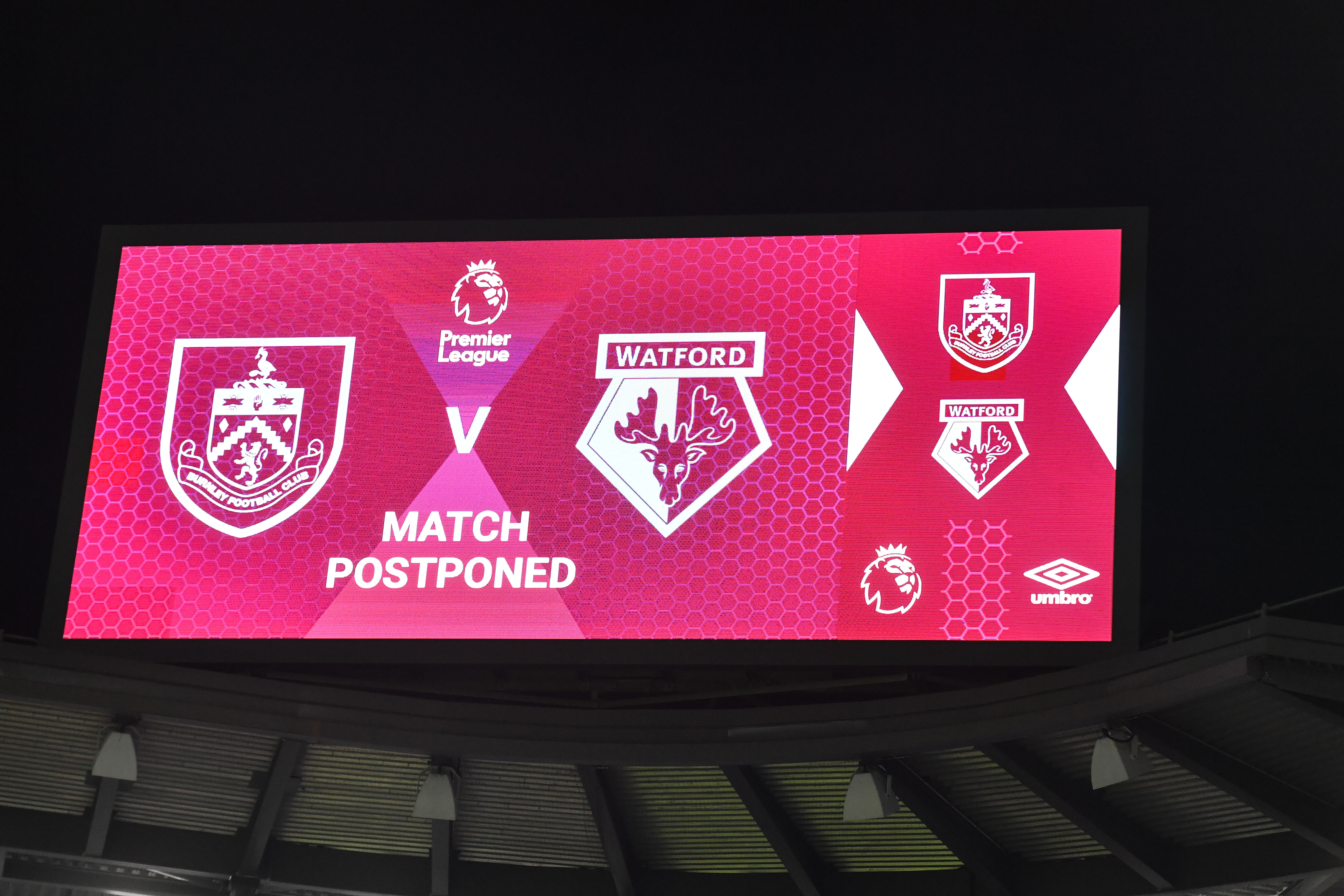Late match postponements remind us that fans are too often an afterthought
Many Watford fans only found out Wednesday's clash at Burnley was cancelled after they'd reached Turf Moor

The coaches were parked outside Burnley Cricket Club and it wasn’t a pilgrimage to visit the ground where a young Jimmy Anderson bowled, long before he took more Test wickets than any other fast bowler in history. Buses from Watford had arrived by the back entrance to Turf Moor, completing a 220-mile journey, only to discover they would have to make another one back to Hertfordshire.
It was at 5pm on Wednesday, a mere two-a-half hours before a kick-off that never happened, when Burnley versus Watford was called off. Hornets fans photographed Turf Moor, but they could not enter it. Perhaps they were simply luckless victims of COVID, the curse of our era.
Perhaps, though, they had a right to be angry; given no advance warning – neither were Burnley – in what felt a failure of communication.

Later that evening, Watford said they would refund tickets and travel on official coaches. Yet that still left those who paid for petrol, train tickets and hotels and who had taken time off work, sometimes unpaid, facing a sizeable loss. It would be hard to blame them if they thought twice before deciding to embark on another lengthy away trip in the future.
When supporters returned to grounds in mass numbers at the start of the season, there was a widespread agreement that football had to be more grateful to and appreciative of its fans. Maybe some clubs and bodies merely paid lip service to that. Any Watford supporter feeling he or she was treated with contempt on Wednesday probably has a case.
These are challenging times but it was unsatisfactory for supporters when Brentford against Manchester United was postponed 16 hours before kick-off and then Leicester against Tottenham was called off with eight hours to go, though neither came out of the blue. The still shorter notice on Wednesday felt unacceptable, even in a world of fast-changing developments, but this is a wider issue than Watford and one that may affect followers of many a club over the next few weeks and months.
“Circumstances outside of the control of Watford Football Club led to the postponement,” said a statement on the club website. Very possibly, that is true. But the lack of clarity and transparency means the rest of us cannot be certain. Hours earlier, Jurgen Klopp had said that if he tests positive for coronavirus, he does not mind who knows. That level of openness would help. Some will argue that confidentiality means names should not be proffered but supporters who made a 440-mile round trip for nothing deserve some information.
Get FourFourTwo Newsletter
The best features, fun and footballing quizzes, straight to your inbox every week.
The Premier League said Watford they had “an insufficient number of first-team players available to fulfil the match.” But in part that was because they already had eight injuries. They probably didn’t have one COVID case or 10, but somewhere in between. But no one knows for sure. At the very least, fans deserve a cut-off point, a time when they know if a game will go ahead.
Meanwhile, other clubs have been complaining that their games weren’t called off. And, once again, the fans do not appear foremost in their thoughts. If the Premier League has played hardball with some by refusing postponements, perhaps it is the correct stance. There can be a double standard between COVID cases and other absences, whether due to injury or suspension, but Premier League clubs have huge squads. Some hide behind a veil of secrecy but, apart from in extreme situations – as Tottenham had last week – it seems very plausible they actually could have fielded a team.
And throughout the last two years, there has been the depressing sense that rather too many in football have tried to exploit a pandemic for their own purposes. The most disgraceful of all were the Super League plotters, but rewind before Project Restart and a group of clubs seemed keen to cancel relegation. Two of their apparent members, Brighton and Watford, wanted their games this week called off. Perhaps that is just a coincidence; sadly we are in a climate when there are reasons to be suspicious of clubs’ motives.
There is a sense that some are too keen to get games called off, banking on having players fit again for a rearranged date, rather than actually needing to. A lack of information makes that theory nigh-on impossible to prove, but clubs ought to remember supporters will have planned around the original dates.
When there are COVID cases, and in times of uncertainty, there are legitimate and understandable concerns for the health of players and their families. Yet a disproportionate number of the cases seem to involve unvaccinated players – another issue clouded by a shortage of transparency - and the rest of society should not be held to ransom by vaccine refuseniks.
Moreover, any postponement also impacts on the other club, when they are willing to play, and the fans. Ask them to invest time and money and faith in your club, to make long journeys on midweek winter nights, and if at all possible, you have a duty to them to play.
Subscribe to FourFourTwo today and save over a third on standard price.
Restock your kit bag with the best deals for footballers on Amazon right now
ALSO READ
LIST Football Manager 2022: All the FM22 wonderkids you'll need to sign
TALENT FIFA 22: The 150 best wonderkids in the game
GUIDE Best football gifts: Present ideas for football fans
BUY IT NOW Order the new Champions League ball now
Richard Jolly also writes for the National, the Guardian, the Observer, the Straits Times, the Independent, Sporting Life, Football 365 and the Blizzard. He has written for the FourFourTwo website since 2018 and for the magazine in the 1990s and the 2020s, but not in between. He has covered 1500+ games and remembers a disturbing number of the 0-0 draws.

